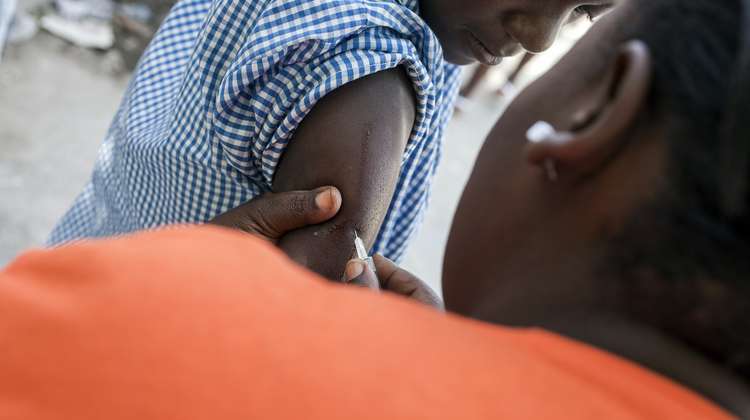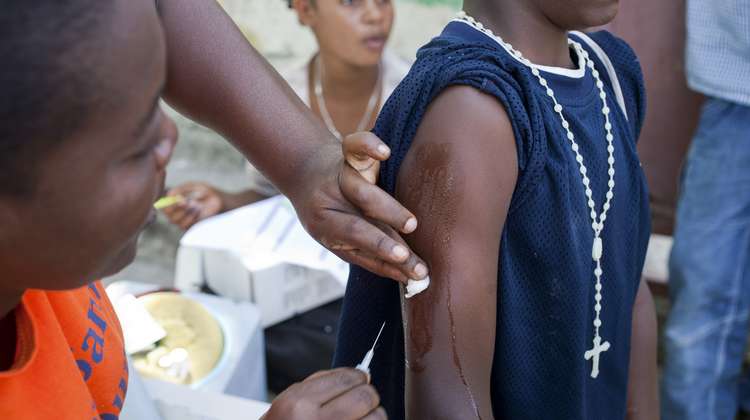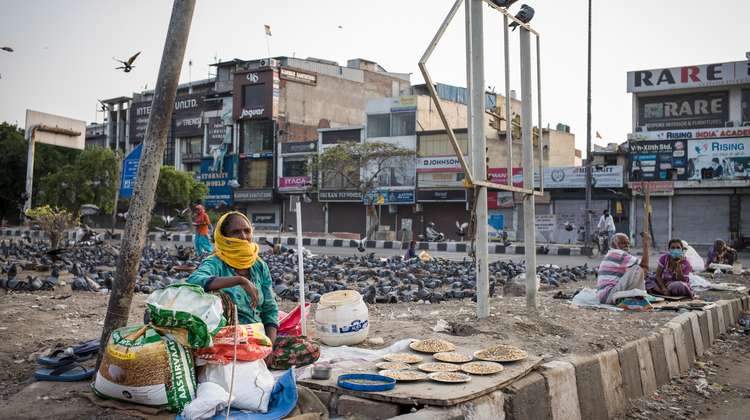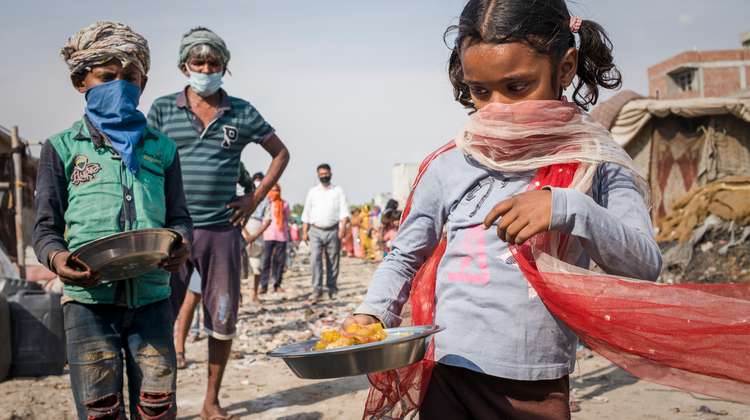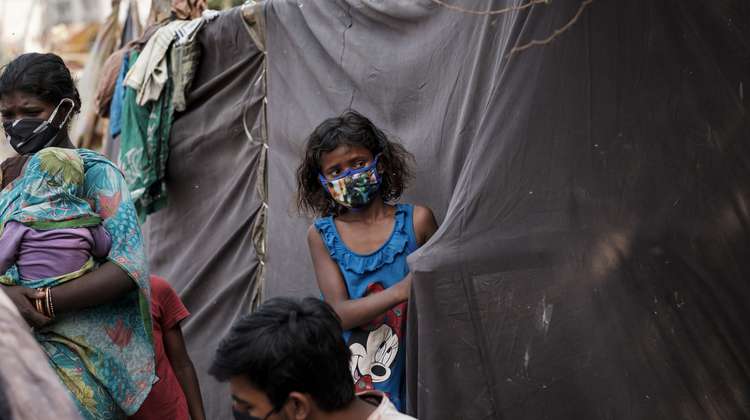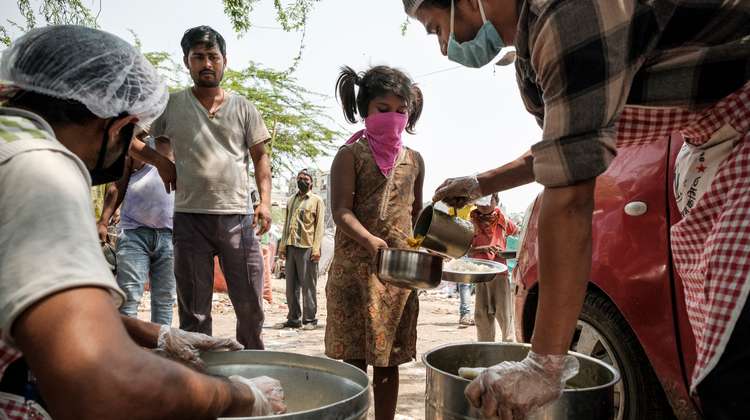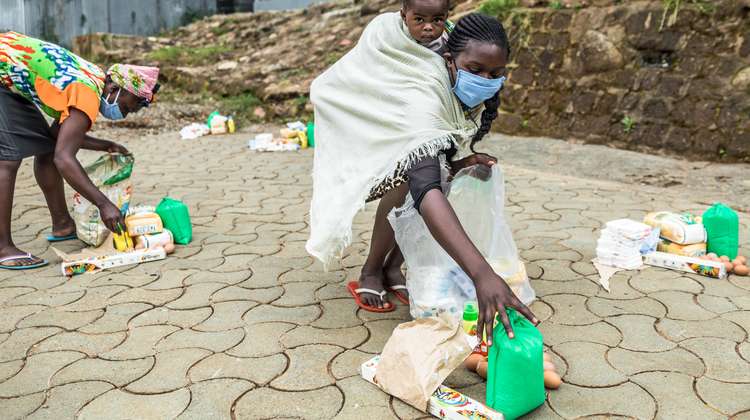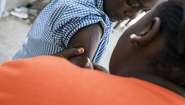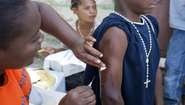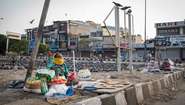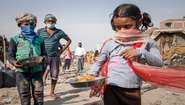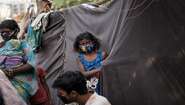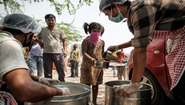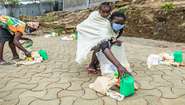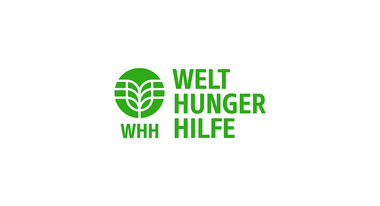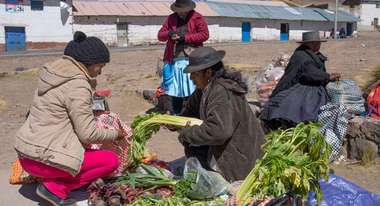No End to the Pandemic Without Vaccine Justice
The Coronavirus is Mutating into a Hunger Virus in Poor Countries.
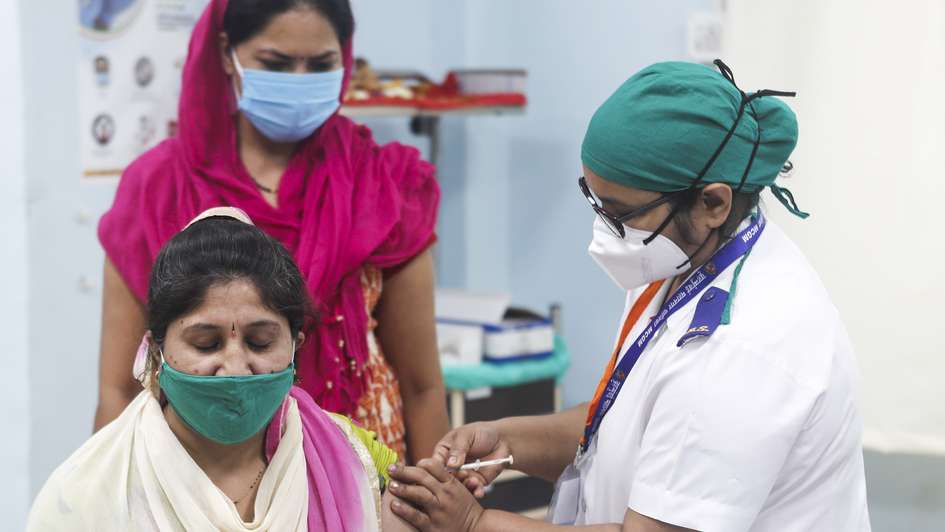
Bonn/Berlin, 2021-03-08 Before the WTO TRIPS Council meeting on 10th March, Welthungerhilfe warns that the coronavirus is increasingly mutating into a hunger virus in poor countries, undoing the development progress of recent decades. At the start of the pandemic, the international community had agreed to distribute available vaccines fairly worldwide. After more than a year of lockdowns and millions of infections and deaths, little remains of this promise. While rich countries have secured the majority of available vaccine doses, many poor countries still have none, including many countries in Africa. The COVAX vaccine alliance has started to supply these countries with vaccines, but this is progressing too slowly. Therefore, a decision should now be made about temporary suspension of the patents for coronavirus vaccines. This would make it possible to quickly expand global vaccine production at additional locations worldwide.
“The EU and Germany, together with around 100 other states, should vote to temporarily suspend patents for coronavirus vaccines, at the request of India and South Africa. For many people in developing and emerging economies, quick vaccination also means protection against a dramatic slide into hunger and poverty. Particularly in regions with weak healthcare systems, rapid access to vaccines makes the difference between life and death. EU votes play a decisive role in ensuring the necessary three-quarters majority of votes at the WTO for patent release,” says Mathias Mogge, General Secretary of Welthungerhilfe.
The effects of the coronavirus pandemic are taking a particularly heavy toll on people living in poverty. Lockdowns in India, Zimbabwe, or Sierra Leone have meant that agricultural day workers and seasonal workers have lost their income, and with it their food security. In crisis areas like the Democratic Republic of Congo, and Syria, the coronavirus is worsening the dire situation faced by people who have already lost everything and are suffering from hunger and illness. According to UN predictions, the number of people suffering from hunger may increase by up to 130 million, and 150 million people may fall into extreme poverty.
“Enabling everyone around the world to have access to vaccination is a question of justice. It will also help determine how long the pandemic, with its mutations, will continue to loom large over people even in rich countries”, stresses Mathias Mogge. “Otherwise, many people will die around the world, not directly from the pandemic, but because of the hunger virus during repeated lockdowns.”
Press pictures for download
Usage note:Please note that the pictures may only be used in a Welthungerhilfe context and may not be passed on to third parties. Images must bear the credit copyright "Photographer/Welthungerhilfe". No long-term archiving. Please delete pictures after use!
Welthungerhilfe is one of the largest private aid organisations in Germany; politically independent and non-denominational. It is fighting for “Zero Hunger by 2030”. Since it was founded in 1962, more than 9,830 overseas projects in 70 countries have been supported with €3.95 billion. Welthungerhilfe works on the principle of empowering people to help themselves: from fast disaster relief to reconstruction and long-term development cooperation projects with national and international partner organisations.





